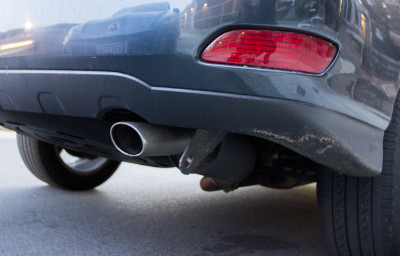
As ride-sharing services grow in popularity in busy cities across the country, researchers are now analyzing the impact that services, such as Uber and Lyft, can have on the environment.
Experts from the Natural Resources Defense Council and the University of California, Berkeley will examine the long-disputed environmental effects in an ongoing study, expected to wrap up in fall 2016. The information will be compiled using data from Uber and Lyft, gathered through a survey and an analysis of rider’s activity, said Amanda Eaken, director of the council’s Urban Solutions and Sustainable Communities, Energy and Transportation Program.
The William and Flora Hewlett Foundation is funding the analysis, Eaken said.
“This debate has been raging because on one hand, companies argue that they lead to a future with less car ownership, with fewer vehicles on the road,” Eaken said. “On the other hand, some people worry that people are using Uber and Lyft instead of biking, walking and public transit.”
She added, “Both of are believable hypotheses.”
Eaken, who announced the study Friday at the Massachusetts Institute of Technology’s Disrupting Mobility conference, said understanding the environmental effects of ride-sharing services is vital as state and city leaders create regulations for the companies.
The researchers are in the study’s preliminary stages, drafting the survey and identifying the data they need, according to Susan Shaheen, an adjunct professor at Berkeley and one of the study’s lead researchers.
Ultimately, the results of the survey could offer an answer to the environmental debate.
“The results will indicate the impacts of the services in terms of greenhouse gas emissions, vehicle miles traveled, vehicle occupancy levels and modal shifts,” Shaheen wrote in an email.
James Baldwin, a lecturer in Boston University’s College of Arts and Sciences, said there is a greater controversy surrounding Uber and Lyft’s impact on the environment because cities can regulate the environmental impact of their taxis.
“A lot of cities have requirements that their taxis be hybrids for example,” he said. “So if we’re replacing a hybrid car with an SUV that’s an Uber or Lyft ride, well then, that’s likely to have a negative consequence for air pollution and greenhouse gases.”
Baldwin said he could see it going either way. For now, though, he sticks with his preferred method of transportation: biking.
Nathan Phillips, a professor in CAS, was more optimistic. He said both Uber and Lyft are doing more good for the environment than bad.
“Cars are just parked most of the time. If we’re efficient about [car] sharing then there’s a lot of potential for carbon savings,” he said.
However, Phillips is no Uber or Lyft fanatic himself. He has both downloaded on his phone, he said, but has only used Lyft once. Like Baldwin, he enjoys biking over the confines of a car. Still, he said he is interested in the study.
Despite acknowledging that there are things that can happen with these services that “aren’t optimal,” Phillips said he was “very optimistic” that researchers would find ride-sharing services do not threaten that much harm to the environment.
On the other hand, several students said they are not extremely interested in the results of the survey. While several said they are curious as to what the results will be, unless the data is “extreme,” as one put it, they will continue to order Uber and Lyft rides.
Alyssa Mohamadzadeh, a sophomore in the Sargent College of Health and Rehabilitation Sciences, said she had not thought much about the environmental effects Uber could have, largely because she sometimes uses Uber for her own safety.
“There’s more to it than just the environmental impact,” she said. “I’ve used Uber really late at night, so it definitely can be safer than public transit.”
Sophomores Kyle Mooney and Pieter Melotte in the Questrom School of Business and the College of Engineering, respectively, said they use Uber at least once a weekend. Melotte said he would reconsider using Uber if the results of the study are severe or surprising.
Mooney, however, said he is wary of the notion that Uber could replace modes of transportation that are traditionally more environmentally friendly, such as bikes. They serve two different purposes, he said.
“I don’t think it could replace bikes because when you think bikes, you think of commuting and stuff. But we don’t commute when we go out,” Mooney said. “I’m not going to take a bike to go out.”




